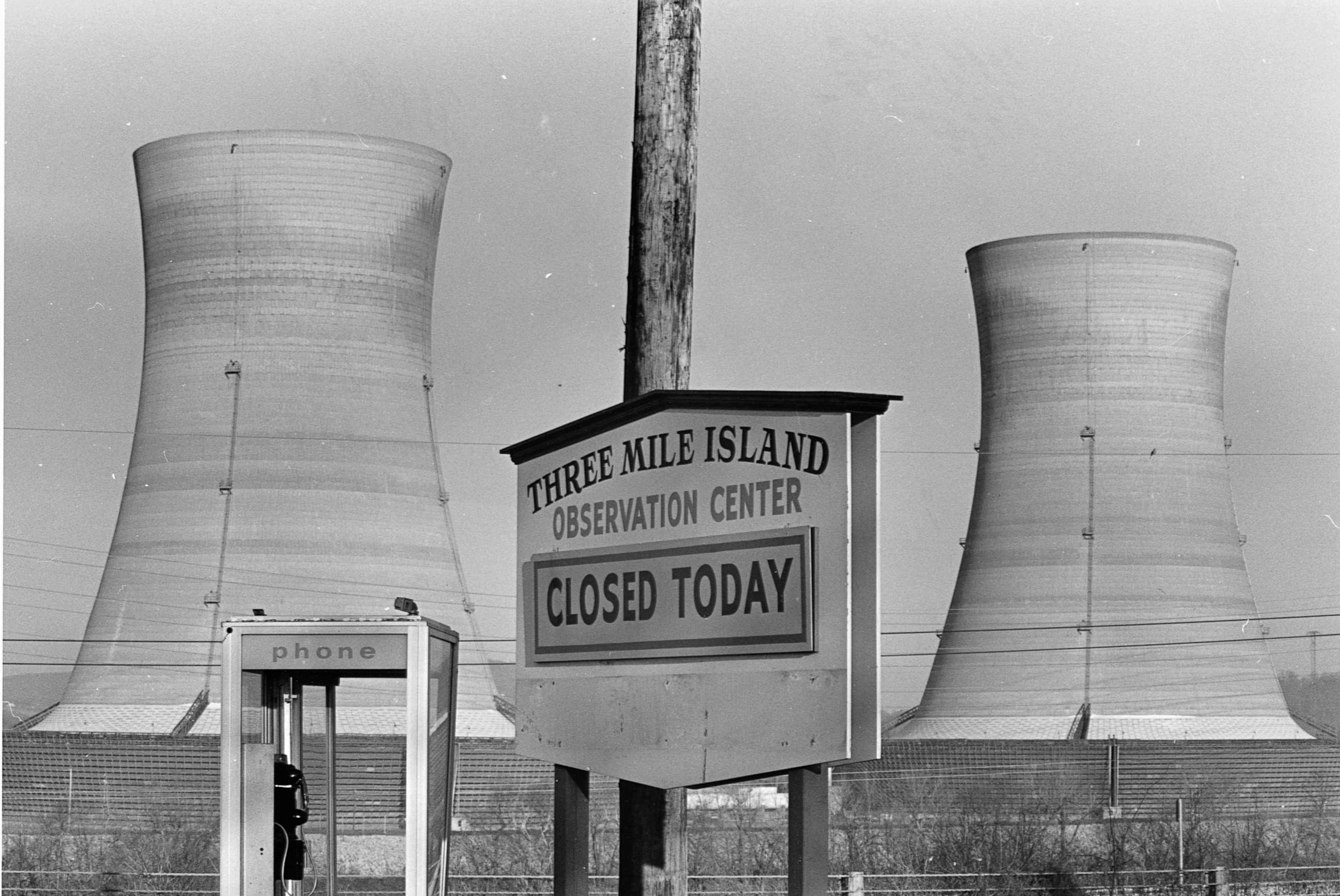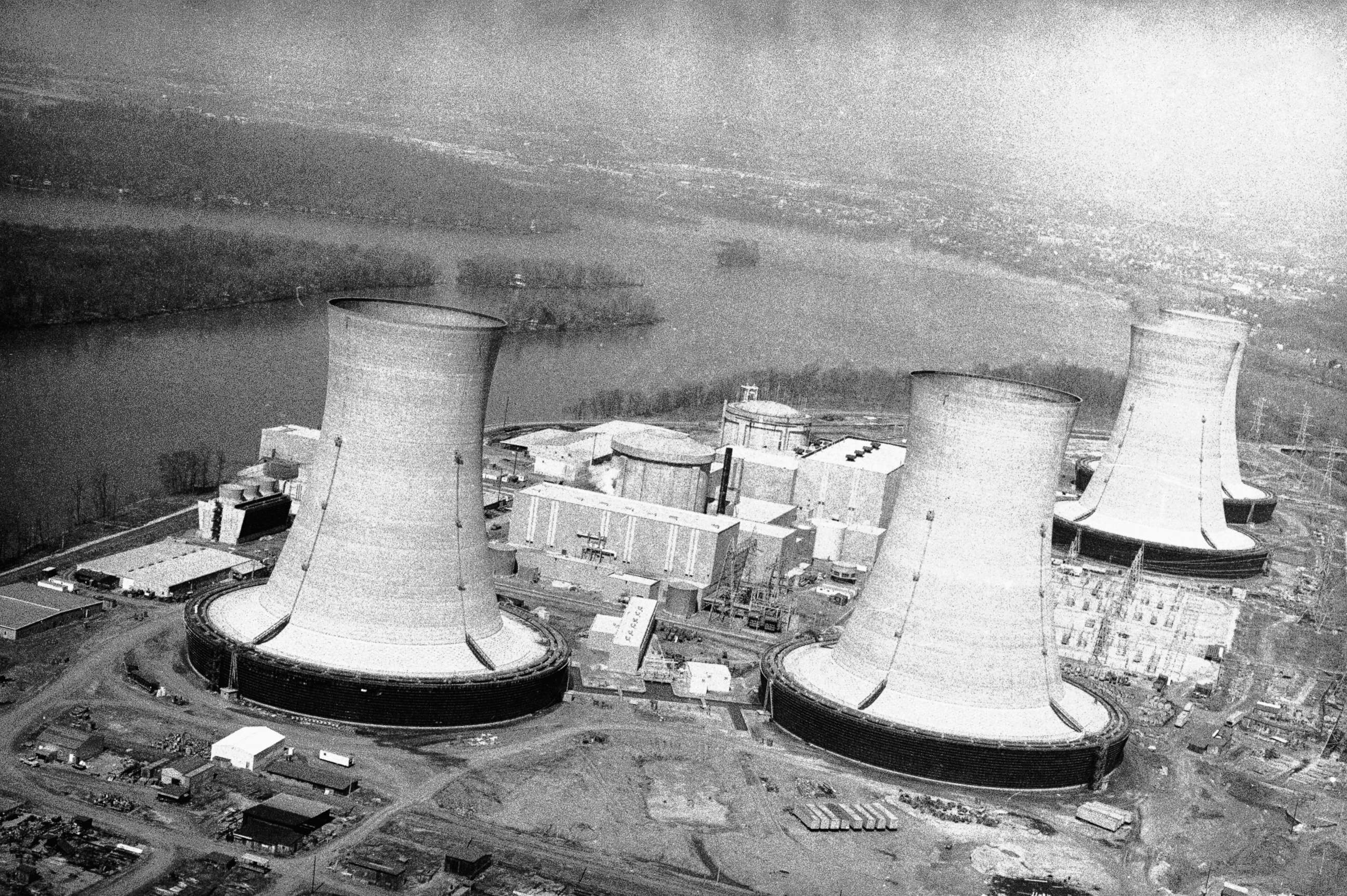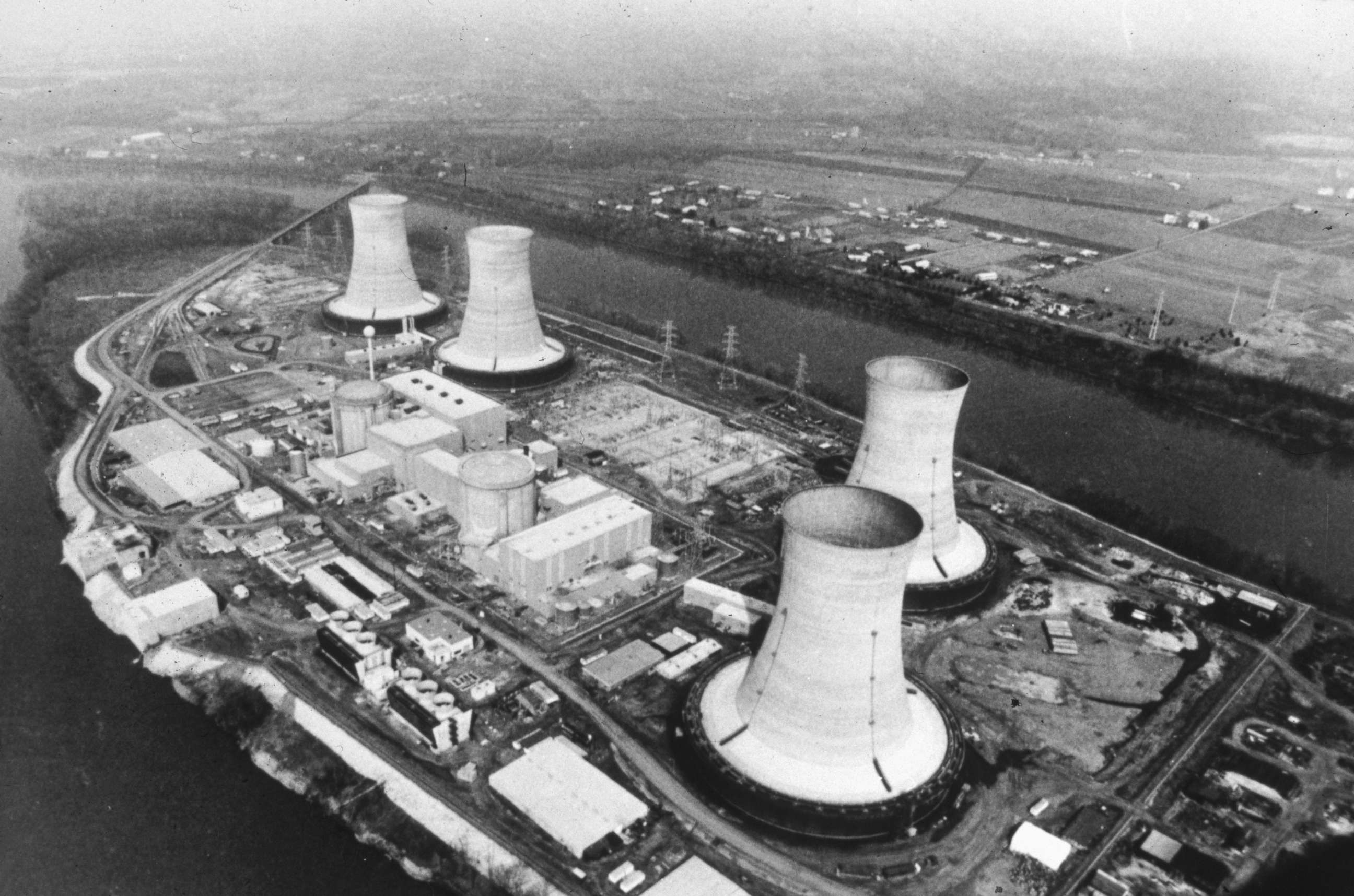4 decades after Three Mile Island meltdown in Pennsylvania, fear lingers over safety of nuclear energy
The Three Mile Island plant is slated to close in September.
The four cooling silos still loom over Three Mile Island, each rising nearly 400 feet above Pennsylvania's Susquehanna River as a constant reminder of both the potential of clean energy and the worst commercial nuclear accident in U.S. history.
Thursday marks the 40th anniversary of the partial meltdown of one of the reactors at the energy plant 10 miles from Harrisburg, the state capital, that sent radioactive gas escaping into the air and sparked days of panic and confusion for residents in the area and across the country who feared they were witnessing their worst science-fiction nightmares come true.
Just after 4 a.m. on March 28, 1979, an electrical mechanical failure caused a water pump in the Unit 2 reactor to conk out, setting off a terrifying series of events that were compounded by human error and delays in notifying the public.

A broken pump disrupted the flow of water that cooled the reactor, causing the partial meltdown of uranium fuel rods and allowing radioactive gas to build up in the reactor and some of it eventually seeped through its four-foot thick containment walls into the atmosphere, officials said. The meltdown created a hydrogen bubble in the damaged reactor and officials worried that it would blow.
Harrisburg resident William Whittock told ABC News at the time that he didn't need officials to tell him that something had seriously gone wrong at the plant.
"I heard a very loud noise that sounded like a huge release of steam," Whittock said in an interview the day of the accident. "I looked out the window, and it was dark, but you could see from the lights that there was a geyser of steam rising up in the air."
But for several days, officials, including then-Pennsylvania Gov. Dick Thornburgh, didn't realize the gravity of the problem and struggled to explain it to the public -- even though a supervisor at the plant had declared an emergency just hours after the accident and the station manager sounded a general emergency for the nearby public that serious radiological consequences were possible.
"I just got to tell you, we share your frustration," Thornburgh, who had been governor for less than 75 days, told residents at a news conference in the immediate aftermath of the accident. "It is a difficult thing to pin these facts down so we can give you some kind of bundle of reliable information. We're trying to do our best. We're getting conflicting reports, too. What we're trying to do is give you our best estimate of what the accurate facts are."

Adding to the drama was the release of the movie "China Syndrome" just a week before the crisis erupted at Three Mile Island. The thriller, starring Jane Fonda, Michael Douglas, and Jack Lemmon, is about a fictional meltdown at a nuclear power plant.
Two days after the accident, Thornburgh advised that pregnant women and children be evacuated from the surrounding area. But many more people than that decided to head out of harm's way. More than 100,000 people fled the area and schools and businesses across the region closed.
'Concerns started to grow. Pregnant women and children were told to evacuate.'
Bob Reid, who was then the mayor of the nearby town of Middletown, recalled in an interview this week with ABC affiliate station WHTM-TV when he got the call of the problems at Three Mile Island.
"I was told there were no injuries and everything was under control," Reid said.
But then he received a second call that sent panic through his community.
"We were told that there had been a leak and things took off from there," Reid said. "Concerns started to grow. Pregnant women and children were told to evacuate."
On April 1, 1979, then-President Jimmy Carter, who had been a member of a Navy crisis team that helped dismantle a damaged nuclear reactor core at a plant in Canada, toured the Three Mile Island facility and attempted to allay the growing fears.

When the emergency was finally declared over, federal officials said that only a small amount of radiation was released into the air. There were no deaths or injuries caused by the accident, according to the Nuclear Regulatory Commission.
The real casualty in the crisis was the prospect of nuclear energy in the United States as a backlash sent support for the industry plummeting.
The accident was followed by sweeping changes and safety improvements in the nuclear industry.
The plant reopened in September 1984 with the exception of the crippled reactor after a $400 million cleanup.
In 2017, Exelon Corp., which now runs the plant, announced it would retire the Three Mile Island facility in September of this year.




